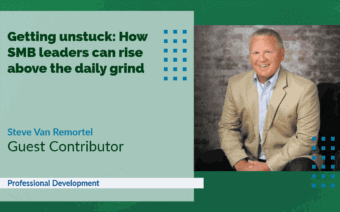
December 28, 2022
Last week, I had an interactive and passionate discussion with a group of business leaders on how to solve their people issues through talent planning.
One of the leaders spoke up and said he wanted to be more proactive in dealing with his people issues but didn’t know where to start.
A great place to start is by understanding the general makeup of your organization.
Many of the people issues organizations face are because every generation has different priorities and motivators.
For example, the motivators or “why they work” for the Baby Boomers generation are totally different than those of Millennials.
If a company uses the same strategies to retain both generations (to feed their “why”), it’s likely they will have higher turnover.
So, it’s important to first determine the broad generational math of your organization – which can help you identify where to start and develop specific talent strategies for each generation.
Here’s a look at some of the generational priorities and motivators:
Baby Boomers (59-77 years old):
Succession planning – Ensure you are developing leaders to replace those preparing to retire.Training on how to develop others – Train this generation on a simple process to develop leaders in the next generation.Knowledge transfer – Put processes in place to transfer the knowledge of this generation to the next.Life planning – Typical motivators of this generation are financial security and leaving a legacy. Help them put a life plan in place to ensure these top motivators are met.
Gen X (43-58 years old):
Leadership development – This generation is filling a majority of leadership roles in companies, so optimize their performance through leadership development training.Behavioral science training – Helping your leaders understand and feed the different motivators of the Millennials and Gen Z can lead to high retention of your future leaders.Knowledge transfer – As this generation gets later in their career, make sure you have processes in place to transfer knowledge to Millennials and Gen Z.
Millennials/Gen Y (27-42 years old):
Leadership development – Prepare these individuals to become future leaders in your organization through leadership development.Employer of choice culture – This generation’s primary motivator is their desire for harmony and work/life balance. They want to work for an organization that lives a “people first” culture.Total person development – If you do not develop the total person, this generation may leave your organization for a company that does.Flexible and remote work schedules – This generation is motivated by flexible and remote work schedules. They don’t work less than others, just differently.1:1 Meetings – To help ensure retention of this generation, hold consistent (monthly) 1:1 meetings to understand how they are doing and invest in them.
Gen Z (11-26 years old):
Understand their natural style – Every person’s natural behavioral style is developed by the time they are 13-15 years old.Career planning – Help employees figure out their optimal career path to performance at their highest level and retain them.Hard-skill training – Focus on training this generation on the technical aspects/hard skills of their job in order to excel at it.Technology plan – Born and raised with technology, this generation will expect leading-edge technology to simplify their work life.
Gen A (Alpha) (Under 11 years old):
This generation is years away from joining the workforce, but it will be interesting to see how growing up during the COVID-19 pandemic shapes this generation.
While these strategies are not all-inclusive, they are intended to provide a launching pad to work upstream to solve your people challenges before they impact your organization.
This approach can take what can be an overwhelming challenge and break it down into manageable priorities and steps.
Steve Van Remortel is founder/CEO of MyTalentPlanner, chief strategist & talent advisor at Stop the Vanilla, LLC and is a speaker, trainer, advisor and three-time author.
 Three Ducks fits the bill to fill Howard Commons vacancy
Three Ducks fits the bill to fill Howard Commons vacancy Oconto Falls development is on the rise
Oconto Falls development is on the rise








